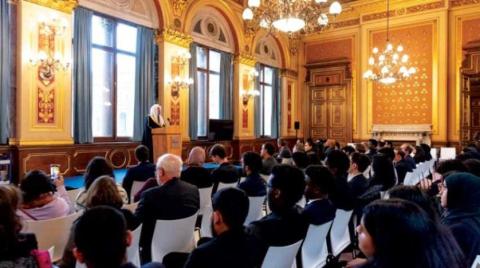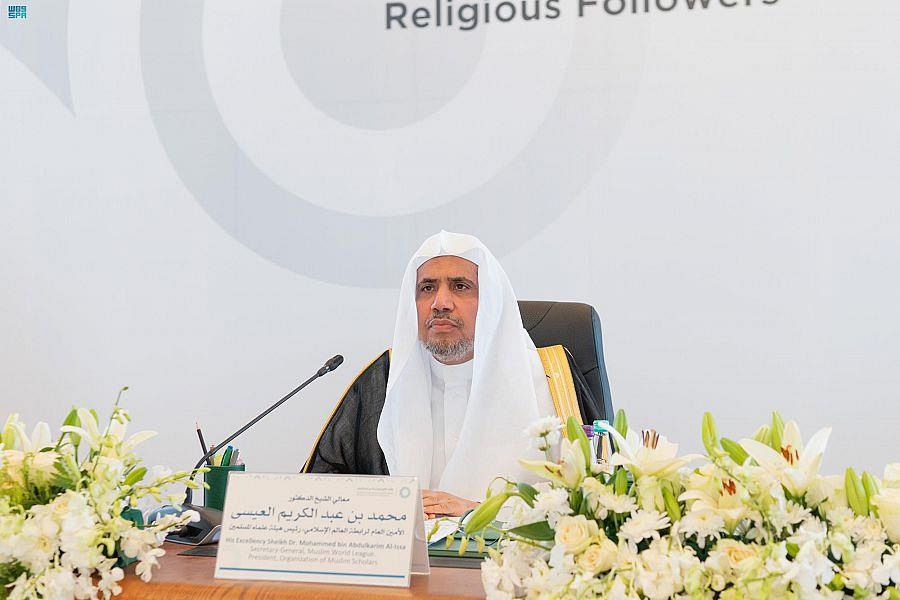
Muslim World League Secretary-General Mohammed al-Issa arrived in London to chair the Conference of Leaders of Muslims European Communities in the presence of more than 300 religious leaders and jurists.
Issa attended several diplomatic meetings during his visit, holding talks with several British officials and executive bodies.
The British Parliament held a reception for the Secretary-General in Westminster Palace, hosted by the Chairman of the Parliament's Environment Committee, Stephen Thames.
During his meetings, Issa asserted the vital role of shared values in promoting communication and cooperation among civilizations in facing their confrontational theories.
He addressed the role of religious leaders in urging their followers to show communication, dialogue, and positive openness to the other to reach the required level of understanding and achieve the great goal of attaining peace and harmony among communities.
The UK Foreign and Commonwealth Office also hosted Issa at its headquarters, where he delivered a lecture in the presence of several political and diplomatic leaders, students of the Diplomatic Academy of the British Foreign Office, and a group of young European influencers hosted by the UK Foreign Office to participate in the discussions that followed the lecture.
He also lectured at the Defense Academy with elite military leaders from the British army and international forces.
The meetings of the Sec-Gen addressed the "Religions for Our Planet" initiative, which presents qualitative mechanisms and an unconventional Islamic vision to raise the level of international awareness about environmental protection and the confrontation of climate change.
Issa reiterated the importance of the faith motive, the role of religious values in strengthening man's relationship with his surroundings, and his sense of the importance of protecting the planet in which humanity shares life and the necessity of preserving its resources.
During his speech, Issa cited the "Middle East Green Initiative" and the "Saudi Green Initiative" related to reducing carbon emissions, which Saudi Arabia launched to designate the region's approach to protecting the earth and nature and confronting climate change.
The lectures also reviewed the most important methods of intellectual confrontation of the roots of extremist ideology, stressing the importance of integrating roles to confront extremist forces, militarily and intellectually, and activating the part of the family and educational, media, and dialogue platforms.
It also emphasized the pivotal role of the efforts of Muslim scholars and Imams in this confrontation.








